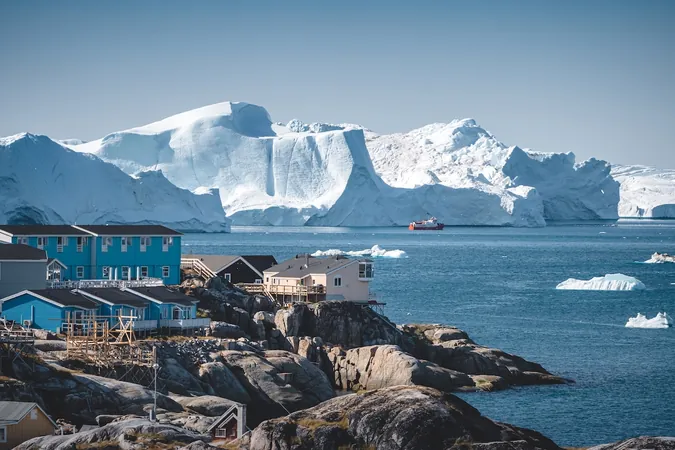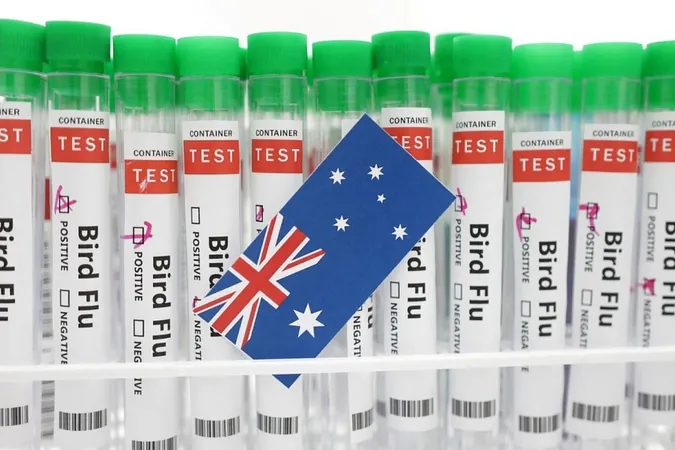
Shocking Discovery: Ocean Heavy Metals Are Becoming More Toxic Than Ever Before!
2024-10-10
Author: Siti
Introduction
A groundbreaking study has revealed alarming findings about trace metals such as lead, arsenic, and mercury in our oceans. Researchers warn that these toxic elements are becoming increasingly hazardous over time due to the compounded effects of ocean warming and increasing acidity, which enhance their bioavailability to marine life.
Human Contributions to Ocean Contamination
While trace metals can naturally occur in coastal waters, their concentrations have surged due to human activities, including agriculture and industrial processes. Sylvia Sander, a marine mineral resources professor at GEOMAR, highlighted a staggering increase in global metal flows: “Human activities have increased the global flow of toxic metals such as lead by tenfold and mercury by three to seven times compared to pre-industrial levels.” Disturbingly, elements like silver are also being detected in coastal waters, primarily attributed to the rise of coal combustion and the extensive use of silver nanoparticles in antibacterial products.
Environmental Stressors and Their Impact
The study, recently published in the journal Communications Earth & Environment, highlights the interconnectedness of environmental stressors. Factors such as rising sea levels, ocean warming, melting ice, and desertification of riverbeds are all contributing to the transport and accumulation of these hazardous trace elements.
Natural and Anthropogenic Sources
Moreover, anthropogenic sources are not the sole culprits; natural sources combined with human contributions create a potent mix for ocean contamination. Heavy metals are funneled into our oceans through fossil fuel consumption, industrial activities, and even shipping. Intriguingly, the study found that plastics play a significant role in this problem, as they can bind to heavy metals like lead and copper, increasing their presence in marine ecosystems.
Rising Bioavailability Due to Climate Change
As ocean temperatures rise, the bioavailability of these trace elements markedly increases, making it easier for marine organisms to absorb them. This effect is particularly pronounced for copper, whose toxicity escalates with higher concentrations in more acidic waters. Recent reports suggest that ocean warming and acidification have reached unprecedented levels in recent years, intensifying concern for marine life and human health alike.
Call to Action for Future Research
The authors of this crucial study note significant gaps in research concerning how climate change impacts oceanic contaminants. They urge for expanded research efforts targeting new and understudied pollutants and call for the establishment of comprehensive regulations and risk assessments for trace elements.
Conclusion and Personal Responsibility
To truly understand the ramifications on both ecosystems and human health, Rebecca Zitoun, co-lead author and marine chemist at GEOMAR, insists, “We must close knowledge gaps regarding the interaction between pollutants and climate change, and develop standardized methods that yield globally comparable data.” The time to act is now! As scientists uncover the chilling ways that human activity affects our oceans, we must advocate for innovative research and robust environmental policies to preserve our marine ecosystems for future generations. What can YOU do to help combat ocean contamination?


 Brasil (PT)
Brasil (PT)
 Canada (EN)
Canada (EN)
 Chile (ES)
Chile (ES)
 España (ES)
España (ES)
 France (FR)
France (FR)
 Hong Kong (EN)
Hong Kong (EN)
 Italia (IT)
Italia (IT)
 日本 (JA)
日本 (JA)
 Magyarország (HU)
Magyarország (HU)
 Norge (NO)
Norge (NO)
 Polska (PL)
Polska (PL)
 Schweiz (DE)
Schweiz (DE)
 Singapore (EN)
Singapore (EN)
 Sverige (SV)
Sverige (SV)
 Suomi (FI)
Suomi (FI)
 Türkiye (TR)
Türkiye (TR)